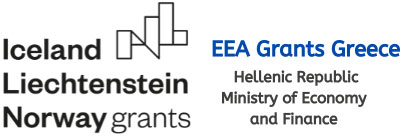The aim of this specific proposal is to set up the mechanism based on which #GIL4W will become a flagship project for both countries acting as a knowledge transfer mechanism from Norway to Greece where members can share tools, lessons learned, business bases and rapidly push forward innovative practices. The key role of the Norwegian partners besides the identification of synergies with the relevant Greek actors will be to transfer through co-creation and frugal innovation concept the valuable Norwegian know-how and help the Post-COVID recovery and the negative impacts of the financial crisis on the Greek economy and the female workforce in the Greek labour market.
GIL4W will create a space where members can share tools, lessons learned, business bases, and rapidly push forward innovative practices. They are encouraged to set their own specific targets to:
- Make a high-level corporate commitment to adopt a gender-responsive approach to innovation
- Design innovations that include women as service and innovation providers as well as end-users
- Adapt implementation approaches to ensure innovations meet the needs of women
- Evaluate gender-responsive impacts by using a data-driven approach
- Scaling of the innovations that provide sustainable solutions to meet the needs of women and girls and creating a Greek Community of Excellence for women innovators and STEM entrepreneurs bringing them to the forefront of the global innovation ecosystem.
Project Partners:
- Athena RIC was founded in 2003 as the “IRIS – Integrated Research for the Information Society”
2. The European Centre for Women and Technology (ECWT) is a European meeting hub for public and private actors, academia, and NGOs from 26 European Union countries working together for measurable and significant results in terms of increasing the number of girls and women in the technology sector in general and ICT in particular.
3. The CTI Diophantus is a scientific body supervised by the Ministry of Education and Religious Affairs, and Technical Advisor of the State for ICT issues, with facilities in Patras and Athens.
4. Demokritos National Center for Scientific Research was founded in July 1961 as a Research Centre for Nuclear Research, Demokritos is today the largest multidisciplinary Research Centre in Greece with approximately 180 Researchers in tenured and tenure-track positions and over 500 research personnel working on projects funded mainly by grants from State Funds, the European Union and private industries.
5. The Institute of Communications and Computer Systems (ICCS) is a non-profit Academic Research Institute established in 1989 by the Greek Ministry of Education in order to carry out research and development activities in the area of telecommunication systems and techniques, computer systems, etc.
6. The Hellenic Pasteur Institute established in 1920, has a long tradition in translational biomedical research, particularly in the field of Infectious Diseases, and a commitment to Public Health Services in collaboration with the Ministry of Health.
Total budget: 62.001,00 euros


